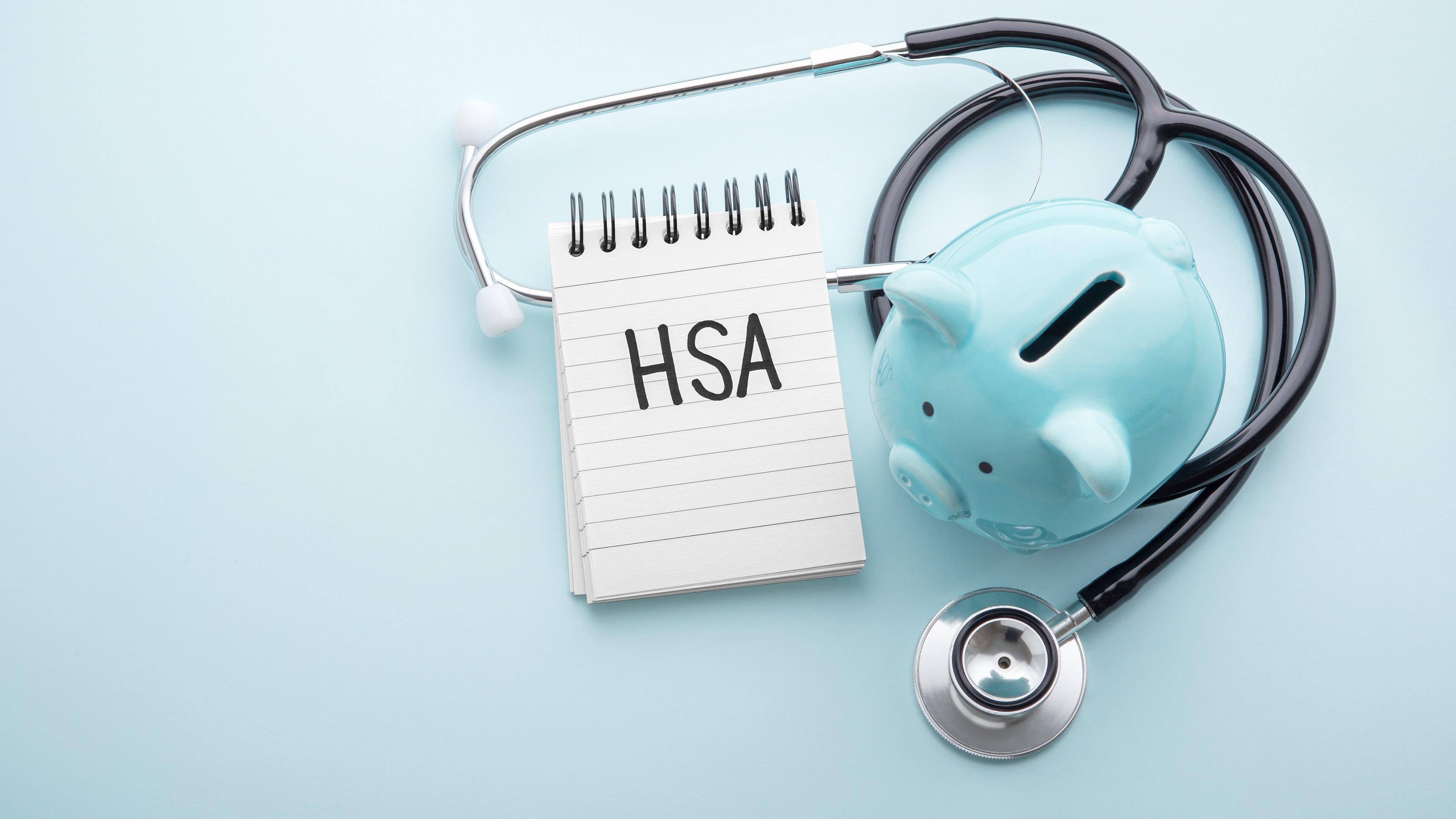The Wealth-Building Powers of Health Savings Accounts (HSAs)
Health savings accounts could be the most underutilized wealth-building tool out there. Here’s who should use them and how to maximize their benefits.

Profit and prosper with the best of Kiplinger's advice on investing, taxes, retirement, personal finance and much more. Delivered daily. Enter your email in the box and click Sign Me Up.
You are now subscribed
Your newsletter sign-up was successful
Want to add more newsletters?

Delivered daily
Kiplinger Today
Profit and prosper with the best of Kiplinger's advice on investing, taxes, retirement, personal finance and much more delivered daily. Smart money moves start here.

Sent five days a week
Kiplinger A Step Ahead
Get practical help to make better financial decisions in your everyday life, from spending to savings on top deals.

Delivered daily
Kiplinger Closing Bell
Get today's biggest financial and investing headlines delivered to your inbox every day the U.S. stock market is open.

Sent twice a week
Kiplinger Adviser Intel
Financial pros across the country share best practices and fresh tactics to preserve and grow your wealth.

Delivered weekly
Kiplinger Tax Tips
Trim your federal and state tax bills with practical tax-planning and tax-cutting strategies.

Sent twice a week
Kiplinger Retirement Tips
Your twice-a-week guide to planning and enjoying a financially secure and richly rewarding retirement

Sent bimonthly.
Kiplinger Adviser Angle
Insights for advisers, wealth managers and other financial professionals.

Sent twice a week
Kiplinger Investing Weekly
Your twice-a-week roundup of promising stocks, funds, companies and industries you should consider, ones you should avoid, and why.

Sent weekly for six weeks
Kiplinger Invest for Retirement
Your step-by-step six-part series on how to invest for retirement, from devising a successful strategy to exactly which investments to choose.
There’s an amazing, tax-advantaged, wealth-building tool available for savvy savers that you may be neglecting to use right now. What is this great financial tool, and how can you take advantage of what it offers?
It’s a health savings account, or HSA.
HSAs are often billed as a type of savings account to help people manage health care costs. You can contribute pre-tax dollars to an HSA, and then pull money from your HSA to cover qualified medical expenses. This can reduce your total costs because the money isn’t taxed, allowing you to keep more of those dollars in your own pocket to use for your health care.
From just $107.88 $24.99 for Kiplinger Personal Finance
Become a smarter, better informed investor. Subscribe from just $107.88 $24.99, plus get up to 4 Special Issues

Sign up for Kiplinger’s Free Newsletters
Profit and prosper with the best of expert advice on investing, taxes, retirement, personal finance and more - straight to your e-mail.
Profit and prosper with the best of expert advice - straight to your e-mail.
While it’s true an HSA is a type of savings account, this simple definition also masks the power of these vehicles when fully optimized. Here’s the full story you need to know.
The secret powers of a health savings account
The nuance that often gets missed with health savings accounts is that you don’t just get to save into an HSA. You can invest the money in the account, too. If you want to fully optimize your HSA, this is an important first step. Evaluate the investment options within your health savings account and ensure that any cash contributed to your HSA is then invested within it.
Ideally, you then keep that money invested — and earn more tax advantages for doing so. The money you contribute to an HSA is tax-free, and so are the investment earnings within the account. Withdrawals from the account won’t be taxed either, so long as you use the money on qualified health care costs.
HSAs offer serious tax savings
No other financial account offers so many ways to earn money tax-free. The key is to plan accordingly so that you can:
- Invest the money within the HSA (rather than keeping it in cash) so it can benefit from compounding returns.
- Keep the money invested in the HSA for the long term, and pay for any present-day health care costs from your cash flow during your working years.
- Build what essentially amounts to a “medical IRA” for your retirement — once you reach age 65, you can use HSA funds to pay for your health care needs as well as for some insurance premiums (like Medicare parts A, B, D and Medicare HMO premiums) tax-free. Note that participating in Medicare makes you ineligible as an individual to contribute to an HSA, but there may be some workarounds if you have a spouse who is not yet eligible for Medicare and is covered by the family high-deductible health plan.
An HSA is still a great tool to consider using, even if you can’t commit to keeping the contributed funds invested for the long term. You can still benefit from many tax advantages and have a vehicle that will help manage present-day health care costs.
However, if your plan is to use those HSA dollars in the short term, investing within the account may not be the best strategy for you — and if you tend to incur a lot of medical costs annually, an HSA might not make sense at all.
Who can use an HSA, and how do you get one?
To use an HSA, you need to have a high-deductible health plan (HDHP) either through your employer’s group insurance benefits or from an independent marketplace. Once you have an HDHP in place, you can open a health savings account. Even if you get your insurance through an employer and an employer contributes to an HSA on your behalf, the HSA belongs to you and stays with you.
Assuming that you:
- Have a high-deductible health plan
- Do not have other health coverage and are not enrolled in Medicare
- Are not claimed as a dependent on someone else’s tax return
… then you can open and use a health savings account.
If you qualify, however, it’s still worth first asking if an HSA makes sense for your specific situation, particularly if you rely heavily on your insurance coverage and have many health care needs. It’s not that the HSA is bad, but that the cost of the required HDHP might outweigh the potential financial benefits of investing within an HSA for long-term growth.
Some cautions against HSAs for certain savers
Again, you must have a high-deductible health plan to open and fund an HSA. As the name suggests, these plans come with lower premiums but very high deductibles. For 2025, that means an annual deductible of at least $1,650 for individual coverage or $3,300 for family coverage. Depending on how you use your health insurance, these plans can end up costing you far more out-of-pocket than alternatives.
In general, HDHPs are best suited for folks who are in great health, do not frequent their doctors or specialists beyond preventive care, and do not anticipate any major shifts or changes to their lifestyle that could impact how they want to utilize their health care coverage.
HDHPs might also make more sense for those who have strong incomes and can handle paying for whatever medical bills they do incur from their current cash flow — meaning, you likely earn enough that you have the ability to pay for bills or office visits, and could even cover a high deductible should you need to do so.
Simple ways to maximize the utility of your HSA
Here’s the rundown of how we most often recommend our wealth management clients use their health savings accounts, assuming that they have sufficient cash flow to handle typical medical costs in the present day and do not have any looming health concerns that would make an HDHP cost-prohibitive:
- Open and fund an HSA; contribute the maximum allowed amount each year. In 2025 you can contribute $4,300 as an individual or $8,550 for family coverage. You can make an additional $1,000 “catch-up contribution” if you are 55 or older. You are not taxed on what you contribute to an HSA.
- Make sure you elect to direct your contributions to investments within the HSA (rather than just cash). We usually set the allocation to mirror that in a core portfolio; we also adjust based on age (the younger you are, the more aggressive you can afford to be, although that should be managed over time the closer you get to age 65).
- Let the invested funds stay invested! While you can make withdrawals to cover qualified health care expenses, the ideal strategy is to let your HSA funds remain invested for the long term in the same way you would with a qualified retirement account. Investment growth within the HSA is not taxed, either.
- Once you turn 65, use your HSA as a tax-free “medical IRA.” By contributing to your HSA and letting it grow through your career, you can arrive into retirement with a specific tax-free fund available for qualified health care costs in your later years.
Eric Roberge, CFP®, is the founder of Beyond Your Hammock, a Boston, Mass., financial planning firm that provides wealth management strategies to couples and young families. To jumpstart your financial planning journey, get a free copy of Eric’s ebook 5 Strategies to Optimize Your Finances.
Related Content
- Three 'Hidden Costs' of Health Savings Accounts (HSAs)
- Non-Eligible HSA Expenses: When a Doctor’s Note Isn’t Enough
- 10 Myths About Health Savings Accounts
- Do You Really Know What Your HSA Can Do for You?
- Five Financial Tips to Help You Plan for the Unexpected
Profit and prosper with the best of Kiplinger's advice on investing, taxes, retirement, personal finance and much more. Delivered daily. Enter your email in the box and click Sign Me Up.

Eric Roberge, CFP®, is the founder of Beyond Your Hammock, a financial planning firm working in Boston, Massachusetts and virtually across the country. BYH specializes in helping professionals in their 30s and 40s use their money as a tool to enjoy life today while planning responsibly for tomorrow.
Eric has been named one of Investopedia's Top 100 most influential financial advisers since 2017 and is a member of Investment News' 40 Under 40 class of 2016 and Think Advisor's Luminaries class of 2021.
-
 Dow Adds 1,206 Points to Top 50,000: Stock Market Today
Dow Adds 1,206 Points to Top 50,000: Stock Market TodayThe S&P 500 and Nasdaq also had strong finishes to a volatile week, with beaten-down tech stocks outperforming.
-
 Ask the Tax Editor: Federal Income Tax Deductions
Ask the Tax Editor: Federal Income Tax DeductionsAsk the Editor In this week's Ask the Editor Q&A, Joy Taylor answers questions on federal income tax deductions
-
 States With No-Fault Car Insurance Laws (and How No-Fault Car Insurance Works)
States With No-Fault Car Insurance Laws (and How No-Fault Car Insurance Works)A breakdown of the confusing rules around no-fault car insurance in every state where it exists.
-
 Dow Adds 1,206 Points to Top 50,000: Stock Market Today
Dow Adds 1,206 Points to Top 50,000: Stock Market TodayThe S&P 500 and Nasdaq also had strong finishes to a volatile week, with beaten-down tech stocks outperforming.
-
 No-Fault Car Insurance States and What Drivers Need to Know
No-Fault Car Insurance States and What Drivers Need to KnowA breakdown of the confusing rules around no-fault car insurance in every state where it exists.
-
 7 Frugal Habits to Keep Even When You're Rich
7 Frugal Habits to Keep Even When You're RichSome frugal habits are worth it, no matter what tax bracket you're in.
-
 Why Picking a Retirement Age Feels Impossible (and How to Finally Decide)
Why Picking a Retirement Age Feels Impossible (and How to Finally Decide)Struggling with picking a date? Experts explain how to get out of your head and retire on your own terms.
-
 The Best Precious Metals ETFs to Buy in 2026
The Best Precious Metals ETFs to Buy in 2026Precious metals ETFs provide a hedge against monetary debasement and exposure to industrial-related tailwinds from emerging markets.
-
 For the 2% Club, the Guardrails Approach and the 4% Rule Do Not Work: Here's What Works Instead
For the 2% Club, the Guardrails Approach and the 4% Rule Do Not Work: Here's What Works InsteadFor retirees with a pension, traditional withdrawal rules could be too restrictive. You need a tailored income plan that is much more flexible and realistic.
-
 Retiring Next Year? Now Is the Time to Start Designing What Your Retirement Will Look Like
Retiring Next Year? Now Is the Time to Start Designing What Your Retirement Will Look LikeThis is when you should be shifting your focus from growing your portfolio to designing an income and tax strategy that aligns your resources with your purpose.
-
 I'm a Financial Planner: This Layered Approach for Your Retirement Money Can Help Lower Your Stress
I'm a Financial Planner: This Layered Approach for Your Retirement Money Can Help Lower Your StressTo be confident about retirement, consider building a safety net by dividing assets into distinct layers and establishing a regular review process. Here's how.
